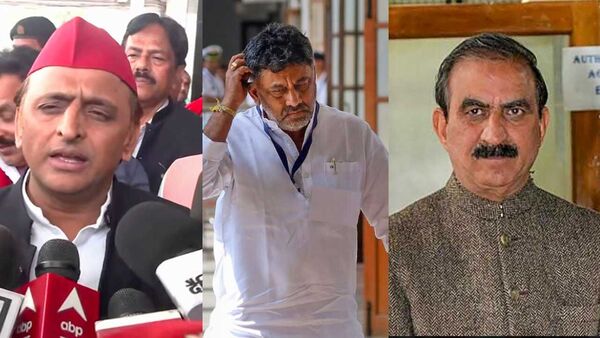The Rajya Sabha polls often serve as a battleground for political maneuvering, and the phenomenon of “cross-voting” adds an extra layer of intrigue to the proceedings. In states like Uttar Pradesh (UP), Himachal Pradesh (HP), and Karnataka, the recent elections kept political observers on the edge due to the potential for unexpected outcomes.
In Uttar Pradesh, the largest state in terms of Rajya Sabha seats, the elections were particularly significant due to the ruling party’s attempts to bolster its numbers in the upper house. With a sizable number of seats up for grabs, parties engaged in intense lobbying and horse-trading to secure support from legislators. The possibility of cross-voting, where members defy party lines to support rival candidates, added uncertainty to the outcome. This phenomenon often occurs due to a variety of factors, including personal allegiances, ideological differences, or even inducements from opposing parties.

SOURCE:- INDIA TODAY
Similarly, in Himachal Pradesh, where the ruling party faced challenges in securing a comfortable majority, the fear of cross-voting loomed large. The state’s smaller size magnified the impact of individual defections, making every vote crucial in determining the final outcome. Political parties deployed various strategies, including offering ministerial berths or other incentives, to prevent their members from straying.
SOURCE:- TIMES NOW
In Karnataka, a state known for its volatile political landscape, the Rajya Sabha polls presented another opportunity for political drama. With multiple parties vying for a share of the seats, the potential for cross-voting added an element of unpredictability to the electoral calculus. Factional rivalries within parties further complicated matters, as leaders struggled to maintain unity among their ranks.
The phenomenon of cross-voting underscores the fluid nature of Indian politics, where loyalty to party lines is often subject to negotiation and compromise. While parties strive to enforce discipline among their members, the allure of power and patronage can sometimes outweigh ideological considerations. In closely contested elections like those for the Rajya Sabha, every vote counts, making the prevention of cross-voting a top priority for party strategists.
As the dust settles on the recent polls in Uttar Pradesh, Himachal Pradesh, and Karnataka, the results will undoubtedly have far-reaching implications for the political landscape of these states and the country as a whole. However, the specter of cross-voting serves as a reminder of the inherent unpredictability of Indian politics, where alliances can shift in the blink of an eye, and loyalty is often tested against the promise of personal gain.
Share your views in the comments

